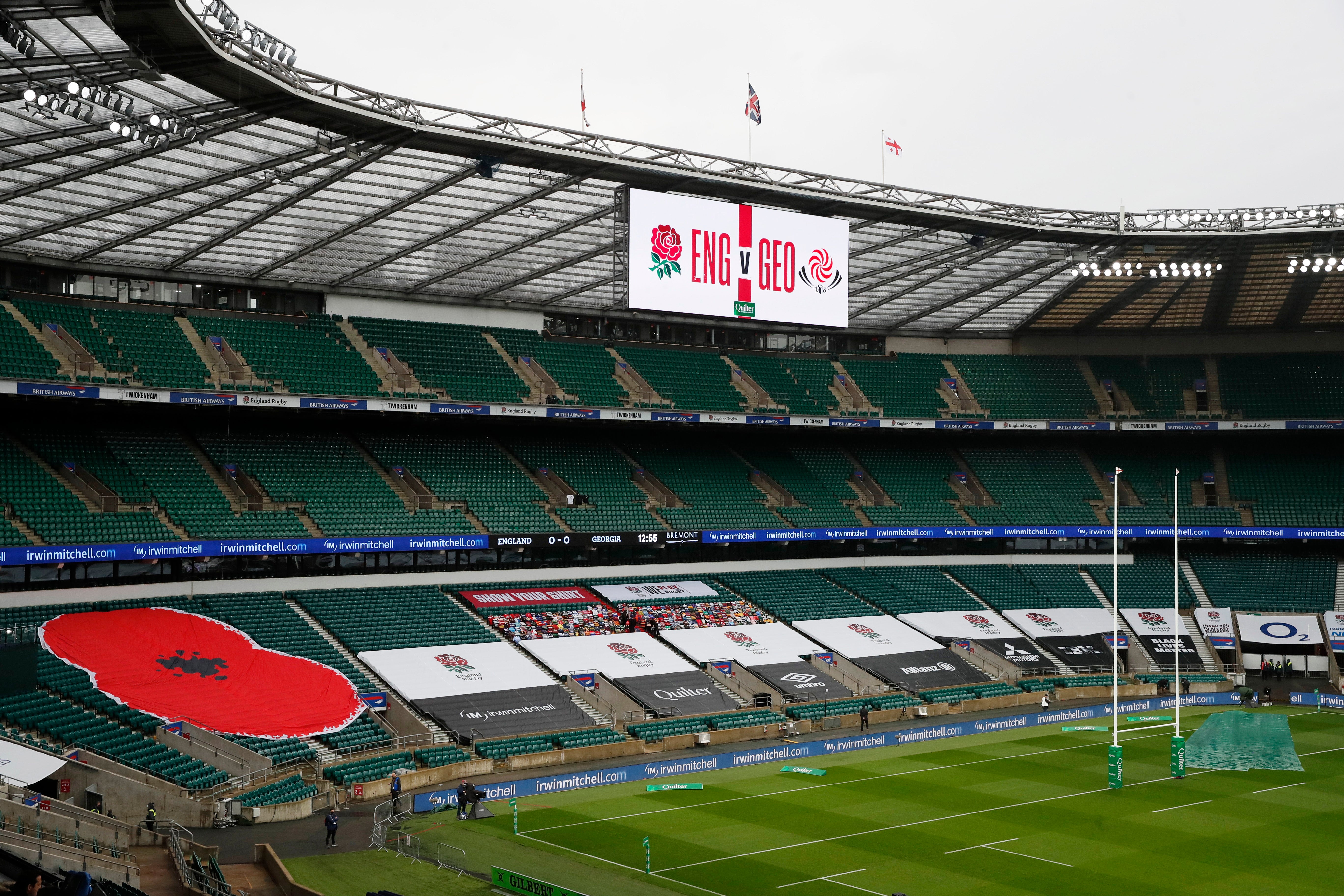Why did rugby union get £135m from the government and football didn’t?
Explaining sport’s bailout after Premiership rugby clubs landed £59m of emergency funding despite the EFL’s ongoing wait for financial aid

Premiership Rugby chief executive Darren Childs has welcomed the £59m emergency loan that has been offered to clubs by the government and believes it will keep all 13 of them in business through to the planned return of supporters next year.
Rugby union proved the main beneficiaries of the government’s £300m Sport Winter Survival Package that was announced by the Department for Digital, Culture, Media and Sport on Thursday, with £135m allocated across the Premiership, Rugby Football Union (RFU), Championship and lower-league pyramid.
However, the announcement was met by outcry from within the football world, with only £25m awarded to the men’s football pyramid from the National League downwards and £3m to the Women’s Super League and Championship clubs.
Why no funding for the EFL?
With English Football League clubs in a financial crisis, many asked where the help was for clubs in the second, third and fourth tiers, given that such a large sum of money had been distributed to rugby union, rugby league, horse racing and eight other national sports.
READ MORE: Government reveals £300m sport bailout package
Talks are ongoing between the Premier League and the EFL regarding a bailout package that will see the top flight support the rest of the professional structure. Although a final agreement is yet to be reached, both parties have reported good progress towards reaching a conclusion, with a requirement to report in weekly to the DCMS following last week’s Select Committee appearance of Premier League chief executive Richard Masters and EFL chairman Rick Parry.
Although around 10 clubs across the EFL have expressed their inability to pay November wages in full at the end of the month due to financial restrictions, it has been stressed that no club will be allowed to go out of business, with an offer on the table of £50m from the Premier League for clubs in League One and League Two.
Talks over how the Championship will be supported are yet to be confirmed, but it is understood that any funding will be provided on a case-by-case purpose due to the fact that some Championship clubs owners are significantly richer than others in the Premier League.
Following talks with the government, there is an acceptance across the professional leagues that there is already enough money within the elite game to look after clubs through the coming months, with a priority given to non-league football and the women’s leagues.
Which sports received money?
Rugby union: £135m (RFU - £44m, Premiership Rugby - £59m, Championship - £9m, Rugby below Championship - £23m)
Horse racing: £40m
Football: £28m (National League - £11m, National League - £14m, Women’s Football - £3m)
Rugby league: £12m
Motorsport: £6m
Tennis: £5m
Netball: £4m (England Netball - £2m, Super League Netball - £2m)
Basketball: £4m (Basketball England - £1m, British Basketball League clubs - £3m)
Ice Hockey: £4m
Badminton: £2m
Greyhound racing: £1m
The remaining £59m is understood to be reserved for ‘contingency funds’.
Why is rugby union getting so much money?
The Sport Winter Survival Package is set out to help sports that have seen significant drops in matchday income following the decision to scrap the return of fans plan from 1 October.
As a result, governing bodies, leagues and sports venues were invited to lodge submissions based on their financial results to demonstrate how much money they will lose by the government’s decision to keep sporting events closed to the public.
Rugby union has the second-highest attendance numbers of fans during the autumn and winter months behind football, and has seen a nine-figure loss in revenues across the sport since the coronavirus pandemic began. As a result, the sport has been allocated £135m across the four previously mentioned areas.
The RFU is expecting a revenue shortfall of £145m following the cancellation of matches this year and the absence of fans at this November’s Autumn Nations Cup matches. The loss of broadcasting, ticketing and hospitality revenue has hit the governing body hard, which has filtered mostly down onto the grassroots game as significant cuts have been made across the sport. At least 169 redundancies have been made at the RFU since consultation began in the summer.
With the RFU earning around £10m per Test match at Twickenham, and Premiership clubs playing weekly throughout the winter months, the sport stands to lose significant revenues without fans in attendance.
Although the Premiership clubs have been allocated £59m of government funding, not all of it may go to them. Clubs must now prove they require the money by submitting their cases to an independent decision-making board, which will be supported by Sport England.
Will the money keep rugby clubs afloat?
Yes, according to chief executive Darren Childs. The sum is “in the ballpark” of what the Premiership clubs asked for to see them through to the end of March, when it’s hoped that fans will be back at sporting events to ease the financial crisis being forced on clubs.
“The aid package is to cover the period from October to the end of March, so it’s not for the entire season, it’s for a portion of this season,” said Childs. “If we’re unable to get fans in April then we’re hoping that would continue and there would be another award but we’ll cross that bridge when we come to it.
“That number has been based on a huge amount of financial work that’s gone on between us and DCMS, and a very clear understanding from us on what clubs will need to get through that period.
“It was pretty much on the money for us. We put in two pretty material submissions to DCMS and that is totally appropriate. If you’re being given access to tax payers’ money then it has to be a rigorous process. The key principle was loss of ticket revenue between that period so that number that’s been quoted is in the ballpark for loss of ticket revenue for us.”
Will the money need to paid back?
The DCMS has announced that the Sport Winter Survival Package will be largely made up of loans, but beneficiaries are not yet aware of the final details of how that money will be paid back.
For the 13 Premiership Rugby stakeholders (the 12 top flight clubs and Saracens), they will receive loans from the government if approved by the independent decision-making board.
That could prove an issue further down the line, with clubs largely operating at an annual loss apart from Exeter Chiefs and Bristol Bears. Upon the shutdown of rugby union earlier this year, all clubs utilised the furlough scheme and cut player wages by around 25 per cent.
However, when asked about how this money - plus any possible interest - would be paid in the future, Childs did not have an immediate answer.
“That’s the bit we don’t know. We’re waiting for details of it. We’ve been told it will be loans and it will be on a need basis. So what’s not going to happen here is there’s an award that gets split 13 ways, this is on a needs basis. Some clubs may decide that they don’t need it, but we think most of them will.”
“We don’t know what the terms of the instrument are going to be yet to be honest with you. As soon as we find out we’ll let everybody know, but all we know is that the £59m is ringfenced for us and it is likely to be a loan instrument. But we don’t know what the repayment terms are, the interest terms or anything else. I think government will follow up quite quickly with us on that now it’s been announced.”
Join our commenting forum
Join thought-provoking conversations, follow other Independent readers and see their replies
Comments


Bookmark popover
Removed from bookmarks